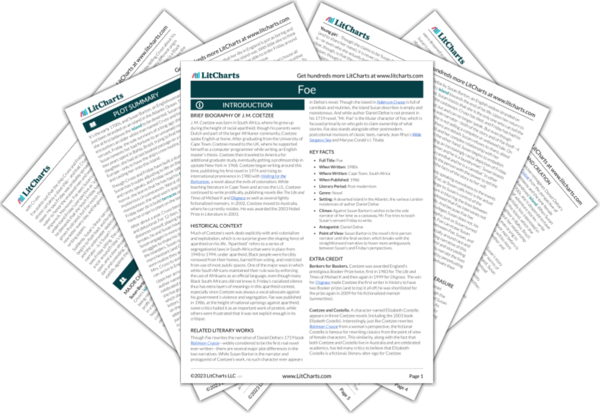Susan conflates Cruso’s lack of desire to write with laziness, but this outlook ignores the gigantic labor of his terraces; Cruso does believe in the value of hard work, but he is more interested in mysterious future generations than in recording “merely” what he, Susan, and Friday were on the island. After all, as Susan is quickly discovering, life is life—it can be just as boring or repetitive on an island as it is off of it. By that logic, maybe her castaway narrative isn’t as inherently worthwhile as Susan thinks it is.


